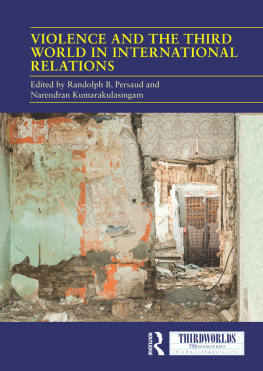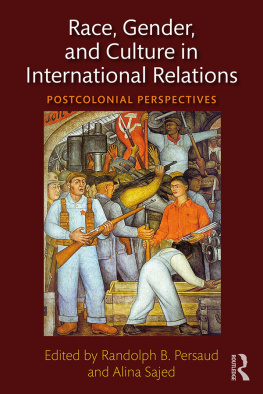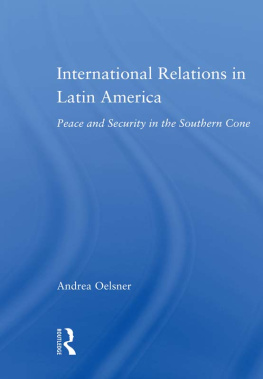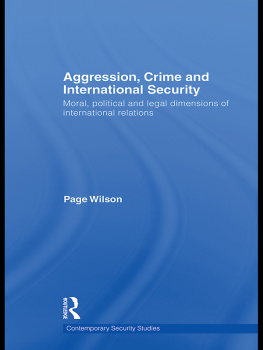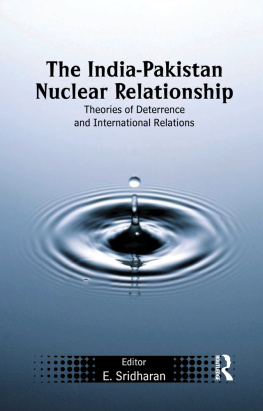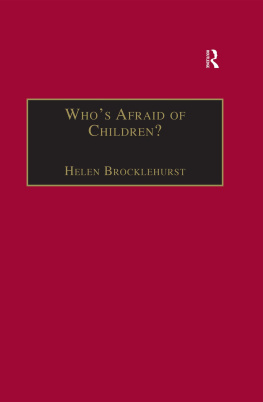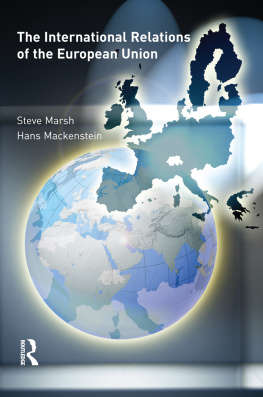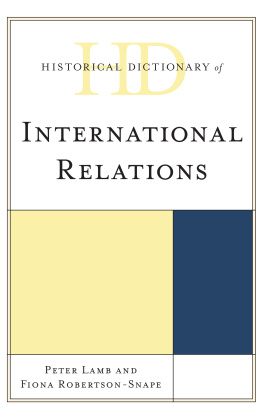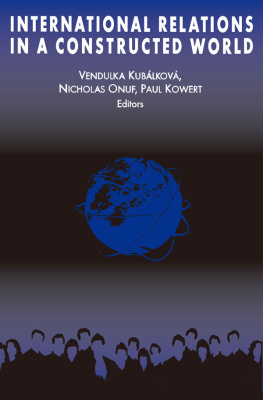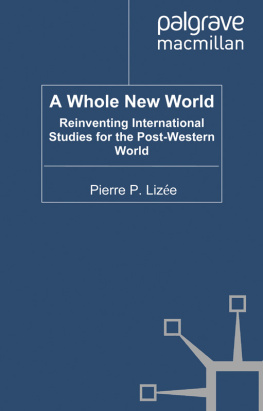Violence and the Third World
in International Relations
Violence and the Third World in International Relations is intended as a contribution to the decolonization of international relations, and especially of international security studies, much of which is dominated by a self-sustaining Eurocentrism.
Rather than focusing on the motivations of violence, this volume is concerned with the devastating and debilitating consequences of war against the Third World. Contributors delve into the violent structuring of Third World societies during colonialism, the Cold War, and globalization. A wide range of topics are systematically examined, including, but not restricted to, the role of racism in the construction of the international system; evangelical universalism and colonial conquest in Africa; American civilizational security as Grand Strategy in Asia; the colonial roots of guerrilla war in India; the widespread suffering and death inflicted on Iraqis through sanctions; violence against indigenous peoples in Colombia related to war capitalism; the complicated legacies of genocide in Cambodia; the Saudi-led, (US and UK backed) war against Yemen; the relationalities between violence in the US and the Third World during Obamas presidency; the structural location of gang violence in Central America in the aftermath of foreign intervention; and a broader understanding of security and insecurity in the Caribbean.
Violence and the Third World in International Relations will be of particular interest to scholars of postcolonial and decolonial international relations, international security studies, and race and international relations.
This book was originally published as a special issue of Third World Quarterly.
Randolph B. Persaud is Associate Professor at the School of International Service at the American University, Washington D.C., USA. He has published extensively on race and IR, hegemony and counterhegemony, and the politics of immigration.
Narendran Kumarakulasingam teaches in the Peace and Conflict Studies Program at Conrad Grebel University College at the University of Waterloo, Canada, and is a Fellow at the Balsillie School of International Affairs, Canada.
ThirdWorlds
Edited by Shahid Qadir, University of London, UK
ThirdWorlds will focus on the political economy, development and cultures of those parts of the world that have experienced the most political, social, and economic upheaval, and which have faced the greatest challenges of the postcolonial world under globalisation: poverty, displacement and diaspora, environmental degradation, human and civil rights abuses, war, hunger, and disease.
ThirdWorlds serves as a signifier of oppositional emerging economies and cultures ranging from Africa, Asia, Latin America, Middle East, and even those Souths within a larger perceived North, such as the U.S. South and Mediterranean Europe. The study of these otherwise disparate and discontinuous areas, known collectively as the Global South, demonstrates that as globalisation pervades the planet, the south, as a synonym for subalterity, also transcends geographical and ideological frontier.
The most recent titles include:
Class Dynamics of Development
Edited by Jonathan Pattenden, Liam Campling, Satoshi Miyamura and Benjamin Selwyn
Third World Approaches to International Law
Edited by Amar Bhatia, Usha Natarajan, John Reynolds and Sujith Xavier
Fragility, Aid, and State-building
Understanding Diverse Trajectories
Edited by Rachel M. Gisselquist
Rural Transformations and Agro-Food Systems
The BRICS and Agrarian Change in the Global South
Edited by Ben M. McKay, Ruth Hall and Juan Liu
Sustainable Development in Africa-EU relations
Edited by Mark Langan and Sophia Price
New Mechanisms of Participation in Extractive Governance
Between Technologies of Governance and Resistance Work
Edited by Esben Leifsen, Maria-Therese Gustafsson, Mara Antonieta Guzmn-Gallegos and Almut Schilling-Vacaflor
The Development Dictionary @25
Post-Development and its Consequences
Edited by Aram Ziai
Power and Illicit Drugs in the Global South
Edited by Maziyar Ghiabi
Hybridity in Peacebuilding and Development
A critical and reflexive approach
Edited by Lia Kent, Miranda Forsyth, Sinclair Dinnen, Joanne Wallis and Srinjoy Bose
The Agency of the Governed in the Global South
Normative and Institutional Change
Edited by Anke Draude
Innovations in Sport for Development and Peace Research
Edited by Megan Chawansky, Lyndsay M. C. Hayhurst, Mary G. McDonald and Cathy van Ingen
Global Debt Dynamics
Crises, Lessons, Governance
Edited by Andreas Antoniades and Ugo Panizza
Developmental States beyond East Asia
Edited by Jewellord T. Nem Singh and Jesse Salah Ovadia
Gendering Security and Insecurity
Post/Neocolonial Security Logics and Feminist Interventions
Edited by Navtej Purewal and Sophia Dingli
Property Rights and Governance in Artisanal and Small-Scale Mining
Critical Approaches
Edited by Chris Huggins
War Economies and Post-war Crime
Edited by Sabine Kurtenbach and Angelika Rettberg
Post-conflict Reconstruction and Local Government
Edited by Paul Jackson and Gareth J. Wall
Violence and the Third World in International Relations
Edited by Randolph B. Persaud and Narendran Kumarakulasingam
For more information about this series, please visit:
https://www.routledge.com/series/TWQ
First published 2020
by Routledge
2 Park Square, Milton Park, Abingdon, Oxon, OX14 4RN
and by Routledge
52 Vanderbilt Avenue, New York, NY 10017
Routledge is an imprint of the Taylor & Francis Group, an informa business
Chapters 18, 1013 2020 Global South Ltd
Chapter 9 2019 Swati Parashar. Originally published as Open Access.
With the exception of , please see the chapters Open Access footnote.
Trademark notice: Product or corporate names may be trademarks or registered trademarks, and are used only for identification and explanation without intent to infringe.
British Library Cataloguing in Publication Data
A catalogue record for this book is available from the British Library
ISBN 13: 978-0-367-37011-4
Typeset in Myriad Pro
by RefineCatch Limited, Bungay, Suffolk
Publishers Note
The publisher accepts responsibility for any inconsistencies that may have arisen during the conversion of this book from journal articles to book chapters, namely the inclusion of journal terminology.
Disclaimer
Every effort has been made to contact copyright holders for their permission to reprint material in this book. The publishers would be grateful to hear from any copyright holder who is not here acknowledged and will undertake to rectify any errors or omissions in future editions of this book.

